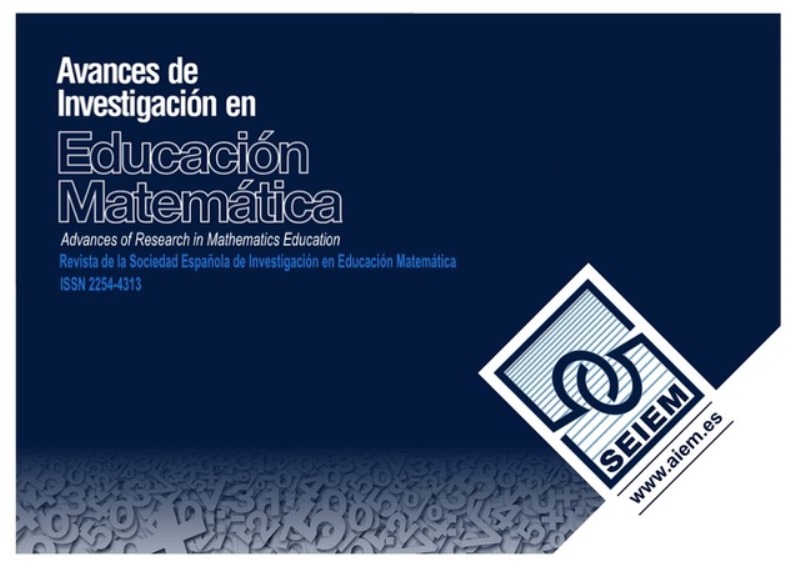Teacher, which is the biggest number? Transcending school curriculum in the exploration of teachers’ specialized knowledge
DOI:
https://doi.org/10.35763/aiem.v0i13.226Keywords:
Professional knowledge, infinity, MTSK, curriculumAbstract
This paper shows an approach to the professional knowledge of mathematics teachers in schoolrelated situations in the context of Primary and Secondary school. In these situations, the use of knowledge of some mathematical elements that are not present in the syllabus is required, in particular, the notion of infinity. Through the analytical potential of the Mathematics Teacher’s Specialized Knowledge Model, we highlight the complexity, coherence and multidimensionality of the knowledge of two teachers when dealing with situations in which infinity has a relevant role.
Downloads
Downloads
Published
How to Cite
Issue
Section
License
The articles published in this journal are under a license Creative Commons: By 4.0 España from number 21 (2022).
Authors who publish with this journal agree to the following terms:
- Authors retain copyright and keep the acknowledgement of authorship.
- The texts published in this journal are – unless indicated otherwise – covered by the Creative Commons Attribution 4.0 international licence. You may copy, distribute, transmit and adapt the work, provided you attribute it (authorship, journal name, publisher) in the manner specified by the author(s) or licensor(s). The full text of the licence can be consulted here: http://creativecommons.org/licenses/by-nc/4.0.
- Authors are able to enter into separate, additional contractual arrangements for the non-exclusive distribution of the journal's published version of the work (e.g., post it to an institutional repository or publish it in a book), with an acknowledgement of its initial publication in this journal.
- Authors are permitted and encouraged to post their work online (e.g., in institutional repositories or on their website) prior to and during the submission process, as it can lead to productive exchanges, as well as earlier and greater citation of published work (See The Effect of Open Access).









